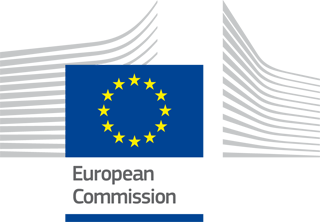

News
European Union Chemical, Biological, Radiological and Nuclear Risk Mitigation Centres of Excellences Initiative (EU CBRN CoE)
Second National Focal Points Round-Table Meeting for Central Asia
20 November 2014.


Funded by the European Union
Second CBRN CoE National Focal Points Round-Table Meeting for Central Asia
Within the framework of the European Union Chemical, Biological, Radiological and Nuclear Risk Mitigation Centres of Excellence (EU CBRN CoE) initiative, the second Round Table Meeting of National Focal Points for the Central Asia Region was held at the Headquarters of the United Nations Interregional Crime and Justice Research Institute (UNICRI) on 19 - 20 November 2014.
The Round Table Meeting brought together representatives from four Partner Countries in the Region, namely: Afghanistan, the Kyrgyz Republic, the Republic of Tajikistan, and the Republic of Uzbekistan, together with representatives and experts from the European Union Directorate-General for Development and Cooperation (DG-DEVCO), the European Commission Joint Research Centre (JRC), and UNICRI, as well as two participants from Pakistan, including the President of the ECO Science Foundation.
The event was an opportunity for the participants to discuss regional priorities and implementation of projects, as well as the Needs Assessment Questionnaire (NAQ) and the CBRN National Action Plan (NAP), two key aspects of the initiative to identify target areas for action. Furthermore, the meeting created a platform for discussion on future projects within the region and further possibilities for the CBRN risk mitigation network. In order to promote such dialogue, Representatives from partner countries of the South-East Europe, Southern Caucasus, Moldova and Ukraine region, namely Georgia, Moldova and Serbia, were also invited to share the experience of their countries in relation to the Needs Assessment process and the creation of National Action Plans.
Within the framework of EU CBRN CoE, activities have been taking place in the region since 2011, and between 2013 and 2014 significant work has been carried out to strengthen regional cooperation and lay the basis for the opening of a Regional Secretariat for Central Asia.
The EU CBRN CoE Initiative is funded by the European Commission and implemented in cooperation with the United Nations Interregional Crime and Justice Research Institute (UNICRI) and the European Commission Joint Research Centre (JRC). The European External Action Service is also involved in the follow-up of the initiative. The initiative is developed with the technical support of relevant international and regional organisations, the EU Member States and other stakeholders, through coherent and effective cooperation at the national, regional and international level. The initiative involves 48 countries in 8 regions of the world.
For more information:
- CBRN Centres of Excellence website: http://www.cbrn-coe.eu/
- European Commission, Instrument contributing to Stability and Peace website: http://ec.europa.eu/dgs/fpi/what-we-do/instrument_contributing_to_stability_and_peace_en.htm


20 November 2014.


Funded by the European Union
Second CBRN CoE National Focal Points Round-Table Meeting for Central Asia
Within the framework of the European Union Chemical, Biological, Radiological and Nuclear Risk Mitigation Centres of Excellence (EU CBRN CoE) initiative, the second Round Table Meeting of National Focal Points for the Central Asia Region was held at the Headquarters of the United Nations Interregional Crime and Justice Research Institute (UNICRI) on 19 - 20 November 2014.
The Round Table Meeting brought together representatives from four Partner Countries in the Region, namely: Afghanistan, the Kyrgyz Republic, the Republic of Tajikistan, and the Republic of Uzbekistan, together with representatives and experts from the European Union Directorate-General for Development and Cooperation (DG-DEVCO), the European Commission Joint Research Centre (JRC), and UNICRI, as well as two participants from Pakistan, including the President of the ECO Science Foundation.
The event was an opportunity for the participants to discuss regional priorities and implementation of projects, as well as the Needs Assessment Questionnaire (NAQ) and the CBRN National Action Plan (NAP), two key aspects of the initiative to identify target areas for action. Furthermore, the meeting created a platform for discussion on future projects within the region and further possibilities for the CBRN risk mitigation network. In order to promote such dialogue, Representatives from partner countries of the South-East Europe, Southern Caucasus, Moldova and Ukraine region, namely Georgia, Moldova and Serbia, were also invited to share the experience of their countries in relation to the Needs Assessment process and the creation of National Action Plans.
Within the framework of EU CBRN CoE, activities have been taking place in the region since 2011, and between 2013 and 2014 significant work has been carried out to strengthen regional cooperation and lay the basis for the opening of a Regional Secretariat for Central Asia.
The EU CBRN CoE Initiative is funded by the European Commission and implemented in cooperation with the United Nations Interregional Crime and Justice Research Institute (UNICRI) and the European Commission Joint Research Centre (JRC). The European External Action Service is also involved in the follow-up of the initiative. The initiative is developed with the technical support of relevant international and regional organisations, the EU Member States and other stakeholders, through coherent and effective cooperation at the national, regional and international level. The initiative involves 48 countries in 8 regions of the world.
For more information:
- CBRN Centres of Excellence website: http://www.cbrn-coe.eu/
- European Commission, Instrument contributing to Stability and Peace website: http://ec.europa.eu/dgs/fpi/what-we-do/instrument_contributing_to_stability_and_peace_en.htm





